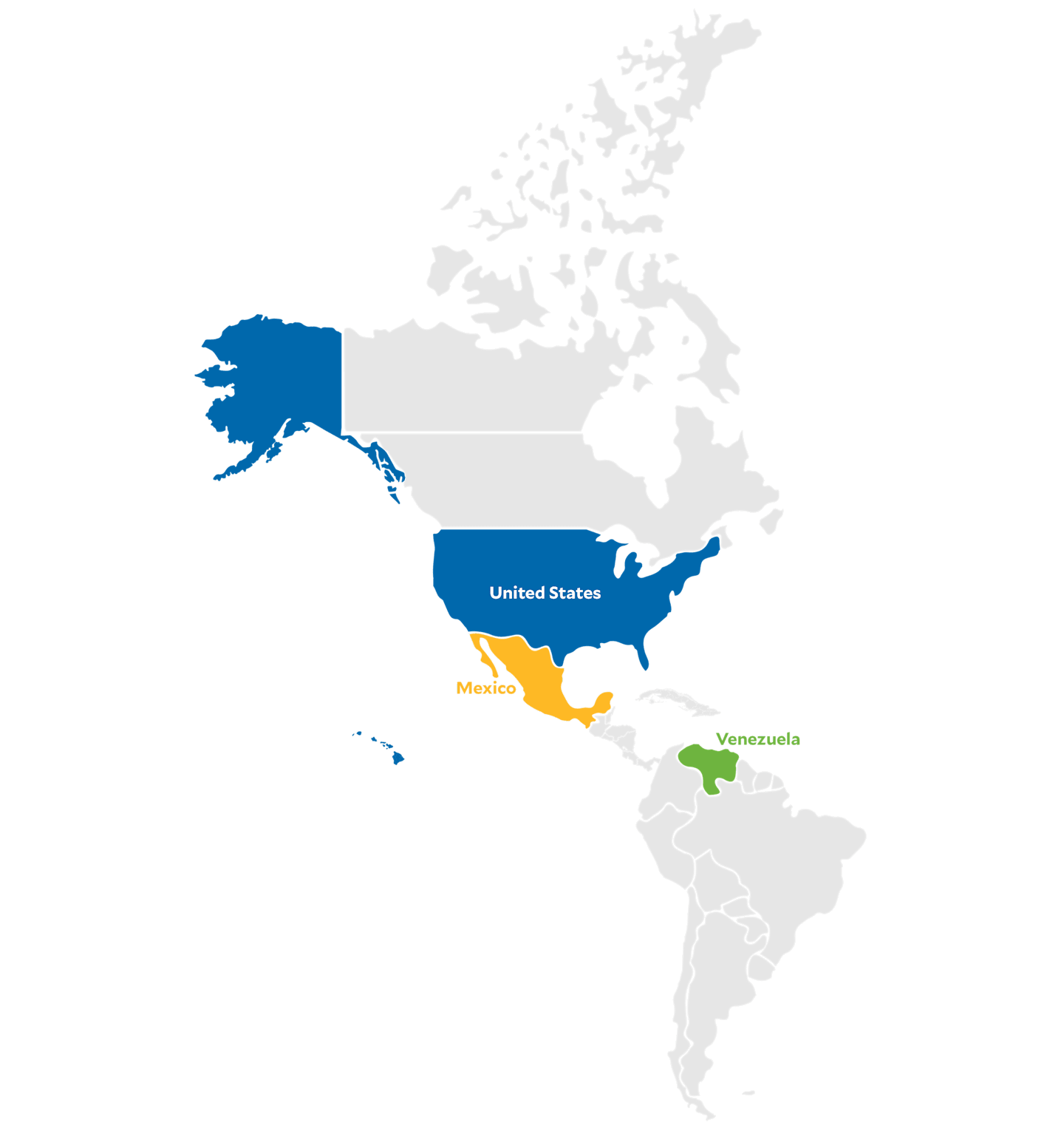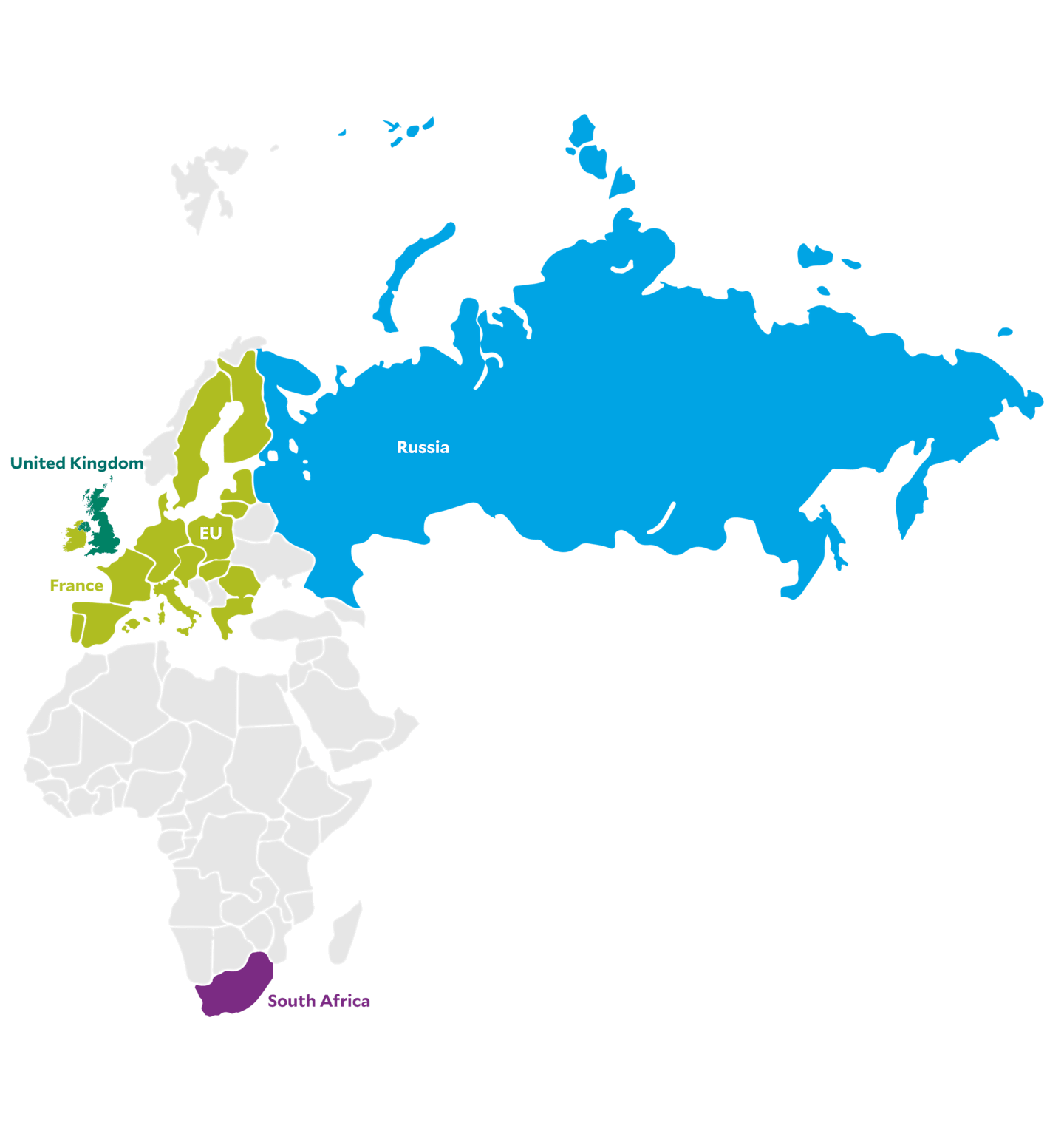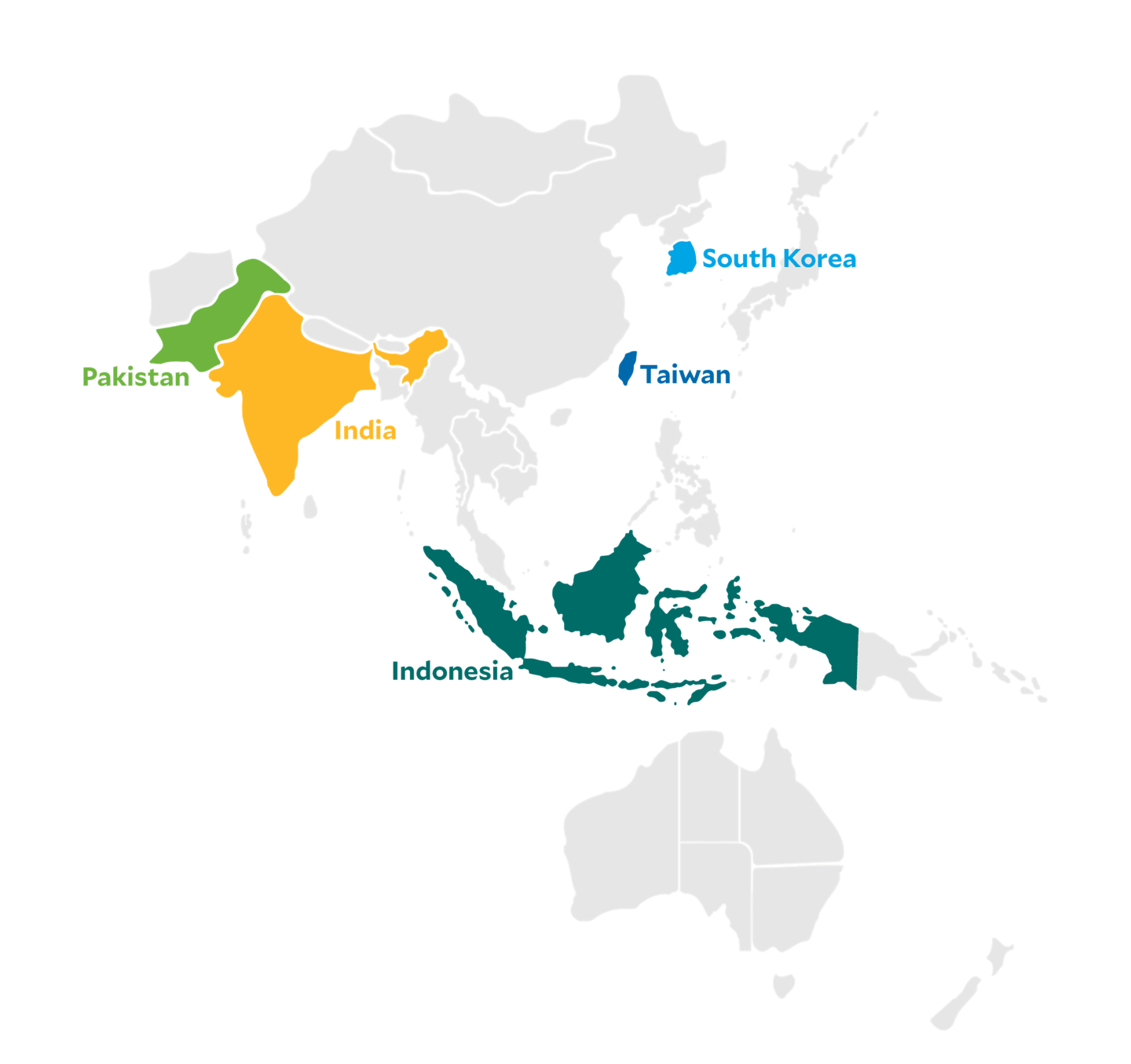International Elections: A Year of Change in 2024
Major elections in 2024 may redefine global economic dynamics.

Key Takeaways
More than 2 billion individuals in 60 countries representing half the global economy are going to the polls in 2024.
Investors are monitoring these elections, as their outcomes could significantly affect international economic policies, trade agreements and market dynamics.
We’ve summarized major elections in the Americas, Europe, Asia and more to give you a quick overview of outcomes so far.
Americas

MEXICO
Election date: June 2, 2024
Result: Claudia Sheinbaum (new)
Takeaways: President Sheinbaum has pledged to expand social programs, sustainability initiatives and infrastructure spending compared to the previous administration. With a significant majority, Sheinbaum can implement substantial domestic policies. However, the economy and business climate are encountering challenges due to corruption and crime.
VENEZUELA
Election date: July 28, 2024
Candidates: Nicolas Maduro (incumbent) & Edmundo González Urrutia
Takeaways: President Maduro faced a strong challenge and declared victory, but the opposition contested the election results. The U.S. has threatened additional sanctions if Maduro’s administration doesn’t provide more transparency about the results. The country's economy has deteriorated because of U.S. sanctions on oil and gas, leading to hyperinflation, widespread poverty and shortages of essential goods.
UNITED STATES
Election date: November 5, 2024
Candidates: Vice President Kamala Harris & former President Donald Trump
Takeaways: Despite resilient economic growth and low unemployment, inflation has remained persistent, while consumer spending has softened. Harris supports proposals to raise the corporate tax rate and increase taxes on the highest-earning individuals. Trump proposes permanently extending the 2017 tax cuts. Both candidates will likely continue supporting nearshoring and trade protectionist measures.
Europe, the Middle East and Africa

RUSSIA
Election date: March 15-17, 2024
Result: Vladimir Putin (reelected)
Takeaways: Under Putin's leadership and with no resolution to the war in Ukraine, Russia faces tough international sanctions. Nonetheless, Russia remains a major player in energy markets, exporting oil and gas to Asia. The economy has grown, driven by military spending, but other sectors have lagged, and inflation has surged.
SOUTH AFRICA
Election date: May 29, 2024
Result: Cyril Ramaphosa (reelected)
Takeaways: President Ramaphosa faces deteriorating infrastructure and high unemployment, especially among young people. Getting policies passed in a fragmented Parliament will be challenging, with the African National Congress losing its majority for the first time in 30 years.
EUROPEAN UNION
Election date: June 6-9, 2024
Result: Ursula von der Leyen (reelected)
Takeaways: President von der Leyen faces a more far-right Parliament. Setting economic priorities for the next EU budget — which requires the backing of all 27 member countries — will be challenging. Key issues include agricultural policy, fair trading practices, energy supply security, migration, defense and sustainability.
FRANCE
Election date: June 30 (first round) and July 7 (second round)
Result: A divided National Assembly
Takeaways: After the far-right National Rally (NR) won the first round, the left-wing New Popular Front (NFP) alliance rallied to regain lost ground in the second round. France currently faces a hung parliament because none of the three alliances (NR, NFP and Ensemble) in the National Assembly holds an outright majority. Newly appointed Prime Minister Michel Barnier and his new government will navigate France’s labor shortages, weak manufacturing sector and high public debt.
UNITED KINGDOM
Election date: July 4, 2024
Result: Keir Starmer (new)
Takeaways: Prime Minister Starmer’s Labor Party won a landslide victory against the incumbent Conservative Party. Starmer vows to tackle the rising cost of living, inflation, high public debt and low economic growth. Changes could lie ahead for the property market as he has pledged to build 1.5 million new homes and tackle affordability and supply issues.
Asia

TAIWAN
Election date: January 13, 2024
Result: Lai Ching-te (new)
Takeaways: Lai Ching-te emerged as president, but his party lost its majority. While this result could hinder economic policy, it might indicate a less aggressive stance toward relations with China and more stability for Taiwan’s booming semiconductor sector.
PAKISTAN
Election date: February 8, 2024
Result: Shehbaz Sharif (reelected)
Takeaways: Pakistan's economy faces critical challenges such as high inflation, unemployment and a significant fiscal deficit. Prime Minister Sharif has pledged to implement crucial economic reforms to prevent Pakistan from defaulting on its sovereign debt. Stabilizing the country will require implementing reforms and building global alliances.
INDONESIA
Election date: February 14, 2024
Result: Prabowo Subianto (new)
Takeaways: President Subianto has promised to carry on with the economic reforms initiated by the previous administration while attempting to boost growth. Indonesia's nickel and cobalt reserves remain crucial for electrical vehicle supply chains. As a result, foreign and domestic investment in infrastructure projects, such as roads, airports and power plants, is steadily increasing.
SOUTH KOREA
Election date: April 10, 2024
Result: Democratic Party (new)
Takeaways: The opposition Democratic Party gained control of the National Assembly. As a result, President Yoon Suk-yeol (People Power Party) faces increased resistance to tax reforms and business-friendly policies as he combats rising inflation and a cost of living crisis. Yoon and the Democratic Party are more aligned on prioritizing investment in the semiconductor, life sciences and artificial intelligence industries.
INDIA
Election date: April 19 to June 1, 2024
Result: Narendra Modi (reelected)
Takeaways: Prime Minister Modi faces challenges in his third term, including high inflation, stagnant wages and weak job creation in higher-wage sectors. With a narrow win and stronger opposition, Modi may need to delay labor and land reforms designed to make India more attractive for foreign investment.
This material has been prepared for educational purposes only. It is not intended to provide, and should not be relied upon for, investment, accounting, legal or tax advice.
Investment return and principal value of security investments will fluctuate. The value at the time of redemption may be more or less than the original cost. Past performance is no guarantee of future results.


